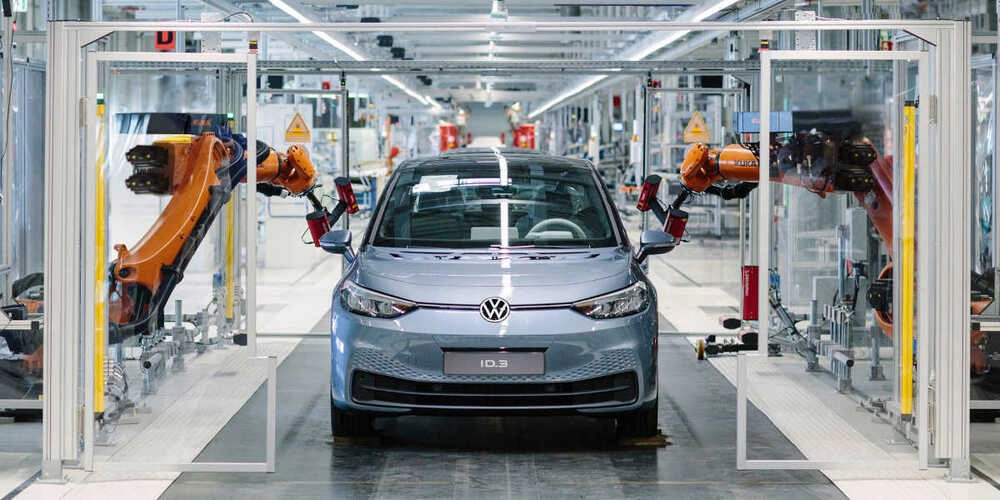Germany stands out as one of the main economic leaders in the European Union.
However, in recent times, it shows clear signs of undergoing a marked crisis that affects both its industry and other sectors.
According to data published by Destatis, the Federal Statistical Office, the Gross Domestic Product (GDP) contracted by 0.3 percent in 2023, representing its worst performance since 2009, excluding the pandemic years.
In contrast, in 2022, it recorded a growth of 1.8 percent.

To address this situation, the country has implemented measures to reduce expenses in various areas, with one of the actions taken being the total elimination of funding incentives for electric vehicles.
This decision has generated divided opinions in the sector, with positions both in favor and against, and Mobility Portal Europe collects these perspectives.
The experts in the field told Mobility Portal Europe: “The electric mobility sector is ready to emancipate itself from governmental support, as it operates on its own with little governmental influence.”
This statement could be evidenced by the registration figures for January of this year, which showed growth compared to the same month in 2023.
However, this increase could be a consequence of the reduction in funding for EVs starting from the first month of 2023.
This reduction led to a significant increase in registrations in the last quarter of 2022, which, in turn, resulted in lower sales at the beginning of 2023.
In contrast, in January 2024, significant growth is observed, mainly due to a comparison effect with the low values of the previous year.
According to the German Association of the Automotive Industry (VDA), this year saw a total of 36,900 new electrified cars sold, marking an increase of almost 37 percent compared to the same period in 2023.
Battery electric vehicles (BEVs) recorded a 24 percent increase, reaching 22,500 units.
Despite this, the VDA anticipates sales of 451,000 BEVs for this year, representing a 14 percent decrease compared to 2023.
It also projects 185,000 plug-in hybrids, a 5 percent increase from last year.
In this context, gridX presents a perspective opposite to the first opinion, emphasizing that subsidies increase the probability of users acquiring EVs, and mentions Norway as a prominent example of this transition.
“The country has established itself as a clear leader through strong support of the eMobility industry, for example, with VAT exemption,” the company asserts.
Despite this, German subsidy programs have a disadvantage in that they are “very confusing for end customers.”
In this sense, they emphasize the importance of having a clear incentive strategy to avoid confusion among potential buyers.
This situation is causing many potential customers to opt to wait for possible future financing programs that are uncertain if they will materialize.
“This could change for the better in the future, although the expansion of EVs is likely not to continue at the same pace as before the end of subsidies,” they indicate.
This German trend continues in the heavy-duty EV sector

Recently, uncertainty was detected in the electric trucks and buses sector regarding funding for the acquisition of heavy-duty vehicles.
In this context, Transport & Environment (T&E) states: “eTrucks will prevail even without incentives.”
However, in case incentives exist, it is insisted that they must be carefully “planned and reliable.”
The cancellation of this funding provides some certainty to companies in the sector, which preferred to wait for a possible call for subsidies before investing in zero-emission vehicles.
“With the definitive elimination, at least now there is security in planning for companies,” they emphasize.
The design and implementation of the German KsNI program, with few subsidy calls and a lack of clarity regarding the funding schedule, at some point “has hindered more than promoted the adoption of electric trucks.”
However, T&E urges the Ministry of Transport to develop other forms of incentives for zero-emission vehicles that are less bureaucratic and benefit a wide range of automobiles, especially heavy commercial ones.








